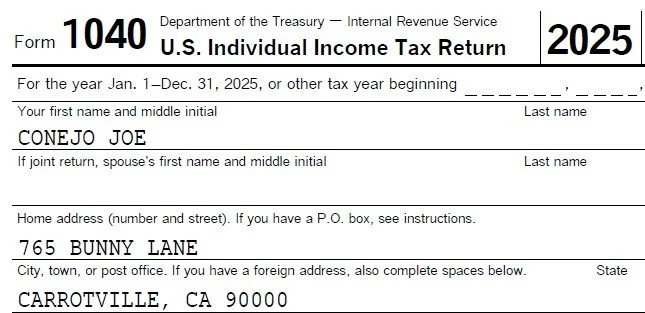When Congress passed the One Big Beautiful Bill Act signed into law on July 4, 2025, it triggered the most sweeping overhaul of the U.S. tax system since 2017. While headlines focused on Trump Accounts and repealed EV credits, the bill quietly reshaped the rules for everyday taxpayers—introducing new deductions, revising old ones, and locking in key provisions that affect how millions of Americans will file in the years ahead. Here is a high-level summary that breaks down the major individual income tax changes that could shape your bottom line from 2025 through 2028—and beyond.
TAX RATES
The new law retains the current individual income tax rate structure that ranges from 10% to 37%. The income ranges these apply to are permanently adjusted for inflation each year.
STATE AND LOCAL TAX DEDUCTION
The “SALT” itemized deduction cap was raised from $10,000 to $40,000 in 2025, then increases 1% annually through 2029, before dropping back to $10,000 in 2030. However, if your modified adjusted gross income (MAGI) is over $500K, the deduction is reduced by 30% of the excess over $500K, but can’t fall below $10,000.
SENIOR BONUS DEDUCTION
The bill provides an additional standard deduction of up to $6,000 per person for seniors ages 65+ in tax years 2025-2028. The deduction is reduced by 6% of MAGI that exceeds $75K (single) and $150K (joint), which means that the senior bonus deduction phases out completely when MAGI reaches $175K single and $250K married filing jointly. You don't have to be receiving Social Security benefits to receive the deduction.
So for example, if your MAGI is $100K and you are single, you will receive an additional tax deduction in 2025 of $4,500 ($6,000 less 6% of the excess of $100K over $75K).
STANDARD DEDUCTION
The standard deduction in 2025 is $15,750 for single/married filing separately, $23,625 for head of household, and $31,500 for married filing jointly, up from $14,600, $21,900, and $29,200, respectively, in 2024. There is a regular extra standard deduction for 65+ seniors of $2,000 single and $3,200 married filing jointly (both 65+; $1,600 if one spouse is 65+), up slightly from $1,950, $3,100, and $1,550 in 2024. The standard deduction will be indexed for inflation annually.
Here’s another example. If you are married, both 65+ with income of $150K or less in 2025, you will be receiving a standard deduction of $46,700 ($31,500 base deduction + $3,200 extra 65+ deduction + $12,000 bonus 65+ deduction). Of course, if your itemized deductions are greater than your standard deduction of $46,700, we should still take the higher of the two on your 2025 return.
TIP INCOME DEDUCTION
Workers in traditionally tipped industries, such as food service, salons, and spas, can deduct up to $25,000 in tips per year from 2025 to 2028. The deduction phases out for AGIs exceeding $150K single, $300K joint filers.
OVERTIME PAY DEDUCTION
From 2025 to 2028, there is an overtime pay deduction of up to $12,500 in overtime pay per person ($25,000 for joint filers). The deduction phases out $100 for every $1,000 over MAGI of $150K single, $300K joint filers. Only the overtime premium (e.g. the extra pay above your regular hourly rate) is deductible.
PERSONAL CAR LOAN INTEREST
Taxpayers can deduct up to $10,000 in car loan interest for new cars purchased between 1/1/25 and 12/31/28 that were assembled in the U.S. This is an “above the line” deduction, meaning, you can take the deduction whether or not you itemize deductions. The deduction is reduced by $100 for every $1,000 over MAGI of $100K single and $200K joint returns.
EV TAX CREDITS
The tax credits for both new (up to $7,500) and used (up to $4,000) EVs expire this October, which means only three months remain to purchase an EV and potentially receive those credits (subject to current MAGI limits). These credits were previously set to expire after 2032.
RESIDENTIAL CLEAN ENERGY (e.g. SOLAR) CREDITS
Solar tax credits go away in 2026, which means taxpayers have limited time remaining this year to purchase, install, and place in service a home solar system by 12/31/25 to receive a 30% tax credit on the system. This also applies to batteries – if you have an existing solar system, you can install batteries by year-end and receive a tax credit on that purchase. If you have unused solar tax credits, they carry forward to future tax years.
ENERGY EFFICIENT HOME IMPROVEMENT CREDITS
These credits also go away in 2026. This applies to certain energy-efficient windows, doors, insulation, heat pumps, central A/C, etc. These credits can be as much as $1,200 to $3,200 per year. They do not carry forward to future years.
CHILD TAX CREDIT
The child tax credit increases from $2,000 to $2,200 for children under the age of 17 at the end of 2025. It phases out when MAGI reaches $200K single and $400K joint.
 Yes, it is true, technically, the law does not state that drivers in California MUST carry auto insurance.
Yes, it is true, technically, the law does not state that drivers in California MUST carry auto insurance.  As we know, auto insurance can be expensive. The California Low Cost Automobile (CLCA) Insurance Program was established in 1999 to help income-eligible drivers with good driving records purchase liability insurance that meets State requirements.
As we know, auto insurance can be expensive. The California Low Cost Automobile (CLCA) Insurance Program was established in 1999 to help income-eligible drivers with good driving records purchase liability insurance that meets State requirements.







